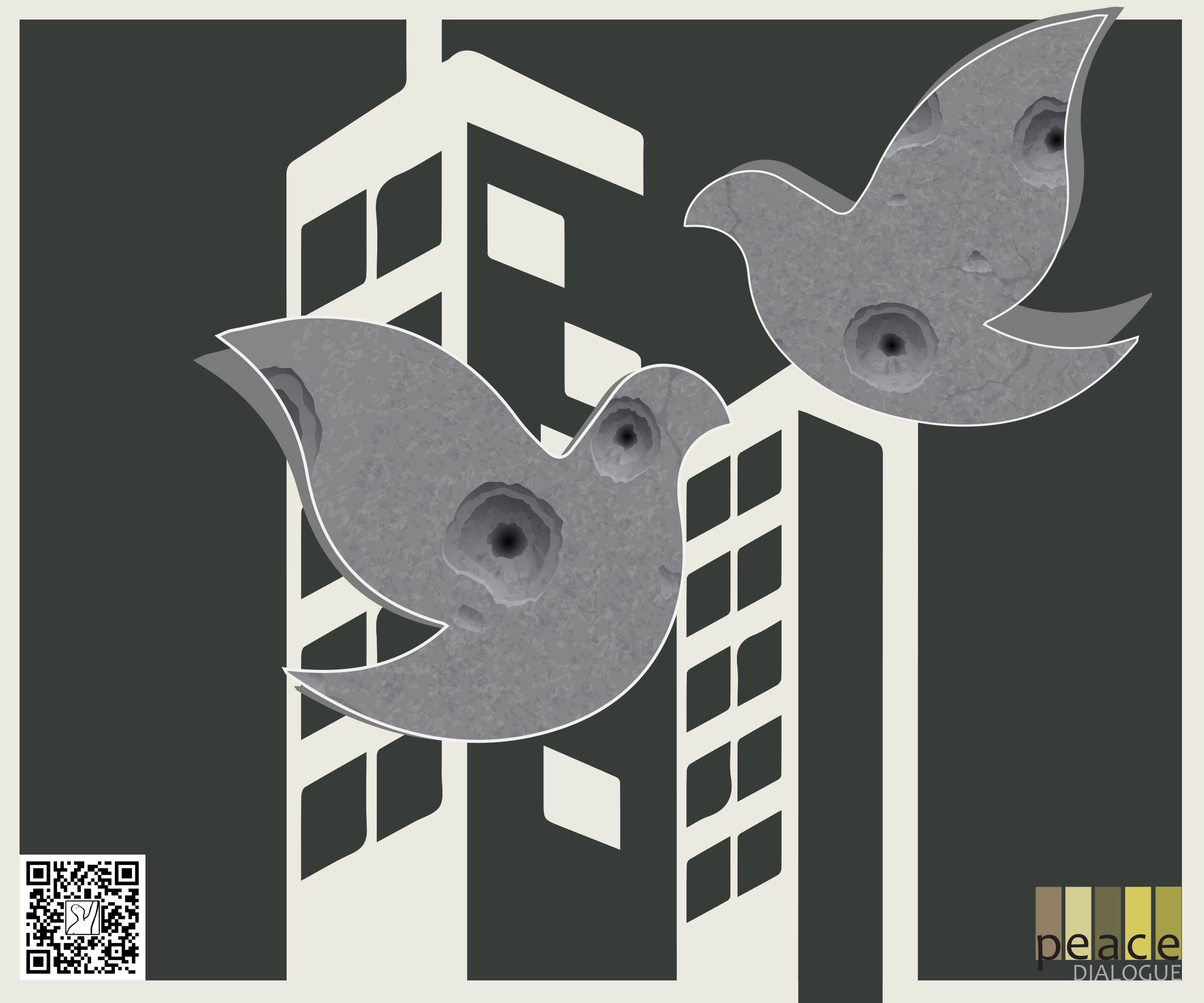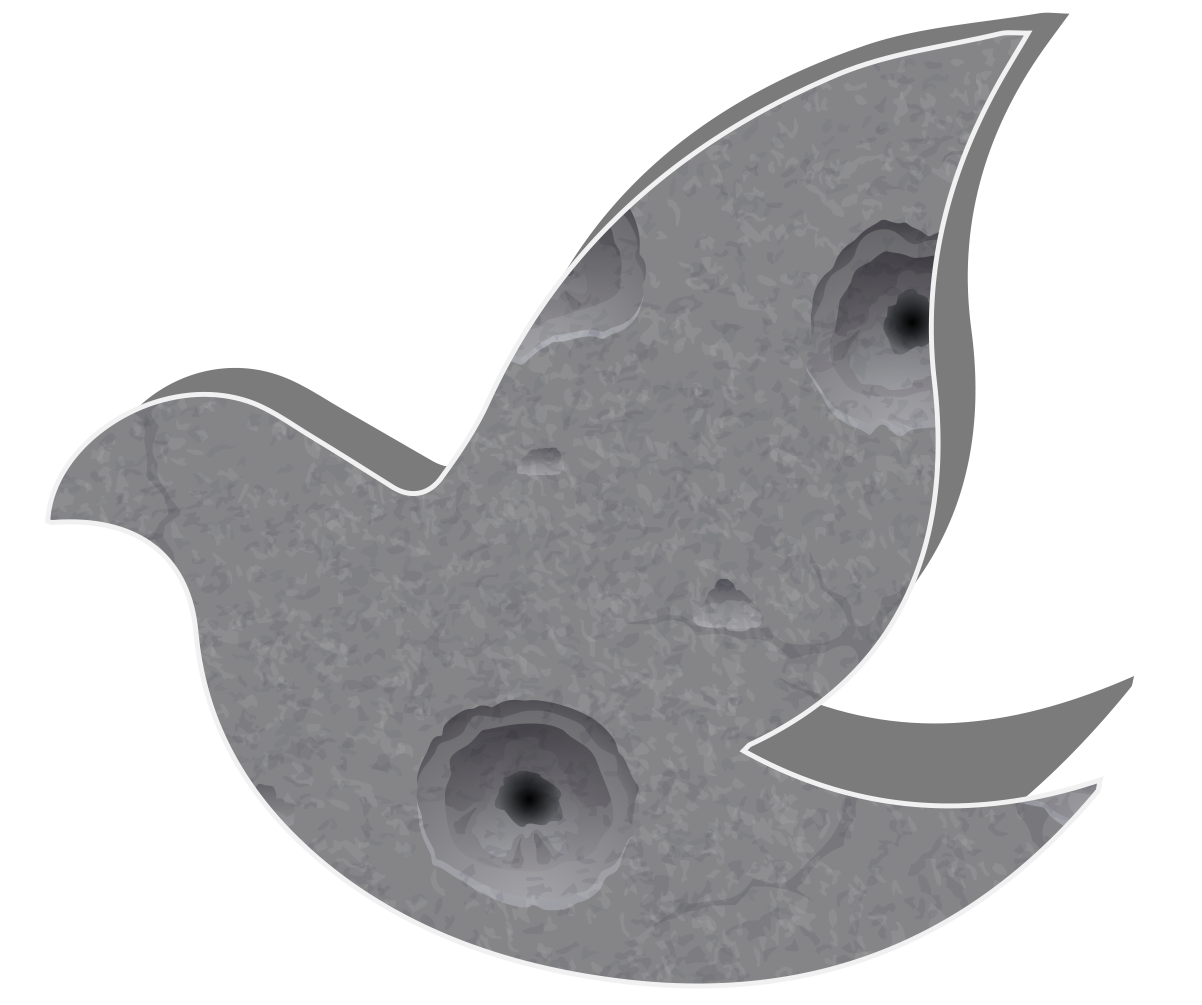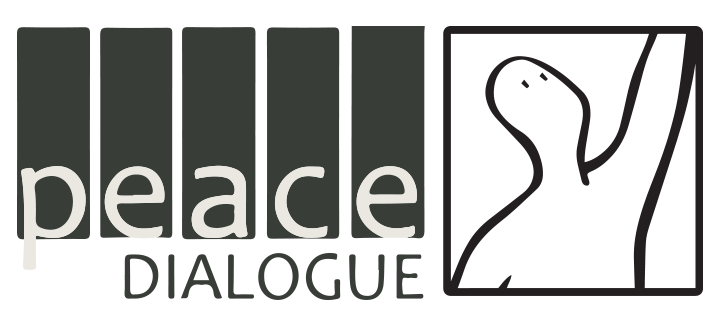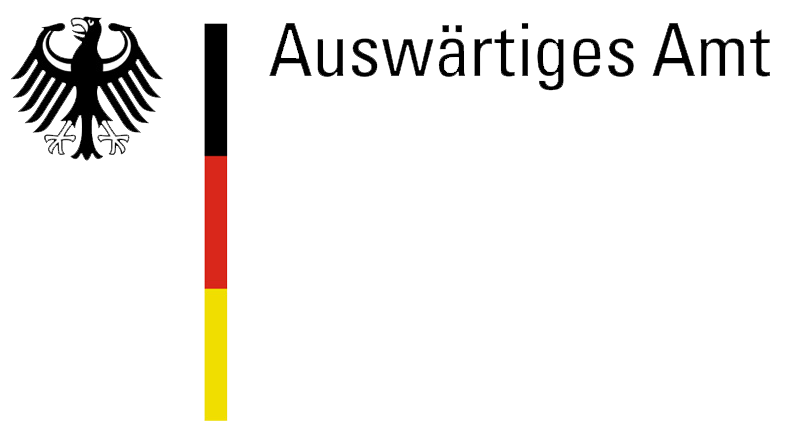
© 2022. ILLUSTRATION BY PEACE DIALOGUE
“…Peace, first of all, is the absence of war. It comes most probably from my context, and the environment where I live. But also, peace is when a person does not feel constantly intimidated but protected both in terms of security and law. All this is peace for me…”
27-year-old female peace activist from Armenia
“…Absence of hatred towards representatives of other nations, absence of traumatic feelings towards one another, absence of revanchist feelings…, and of course it is the prevalence of the idea that human life is much more valuable than anything else, than territory, than political influence, than reputation…”
23-year-old female peace activist from Azerbaijan
These quotes from two young women peacebuilders from Armenia and Azerbaijan illustrate the complexity and asymmetry in perceptions of the peacebuilding community in the societies involved in the Nagorno-Karabakh conflict. The aforementioned ideas were voiced during interviews conducted among 10 young men and women actively involved in the project “CONTACT” and the project team in Armenia and Azerbaijan. The interviews were aimed at exploring the views of the civil society actors on the opportunities and difficulties of their work on the ground after the second war in Nagorno-Karabakh.
CONTACT – IN TIMES OF WAR
When war starts, the peace building community and activists are confronted with doubts whether their work was at all meaningful and could have prevented the conflict from escalating. These doubts come from the activists themselves and also from their societies. Military force appears to be the only means of guaranteeing security; the commitment to dialogue and civil society participation in shaping peace orders appear naive and oblivious – in some cases even as a betrayal of national interests.
 Today peace organizations and activists in Armenia and Azerbaijan are under high pressure. On the political level they’re struggling between marginalization and the danger of being captured by political interests. Their political leverage is rather small, squeezed between national power games and, as in the case of Azerbaijan, a rather hostile attitude toward civil society as a whole. For the activists, it is difficult to assert themselves as independent political actors. They suffer from isolation and speechlessness towards their own societies.
Today peace organizations and activists in Armenia and Azerbaijan are under high pressure. On the political level they’re struggling between marginalization and the danger of being captured by political interests. Their political leverage is rather small, squeezed between national power games and, as in the case of Azerbaijan, a rather hostile attitude toward civil society as a whole. For the activists, it is difficult to assert themselves as independent political actors. They suffer from isolation and speechlessness towards their own societies.
 In this publication we would like to reflect on the situation of peacebuilders in Armenia and Azerbaijan and to show the local voices on the ground. Finalizing this project, we did not find answers to all our doubts and questions, but by sharing our experience we hope to highlight some crucial points, that contribute to the efforts for peace building in the region. Throughout the text, the “CONTACT” initiatives will be introduced in small textboxes to provide some insight into the work “on the ground”.
In this publication we would like to reflect on the situation of peacebuilders in Armenia and Azerbaijan and to show the local voices on the ground. Finalizing this project, we did not find answers to all our doubts and questions, but by sharing our experience we hope to highlight some crucial points, that contribute to the efforts for peace building in the region. Throughout the text, the “CONTACT” initiatives will be introduced in small textboxes to provide some insight into the work “on the ground”.
You can download the full report in English under the link below.
PEACEBUILDING?!/PERSPECTIVES OF ARMENIAN AND AZERBAIJANI PEACE PRACTITIONERS ![]() (PDF, 4 Mb).
(PDF, 4 Mb).

© 2022. This publication was prepared in the framework of the project “CONTACT” implemented by OWEN e.V in partnership with Peace Dialogue NGO. The project is supported by the zivik (Civil Conflict Resolution) programme of the Institute for Foreign Cultural Relations (ifa) with means from the German Federal Foreign Office.






